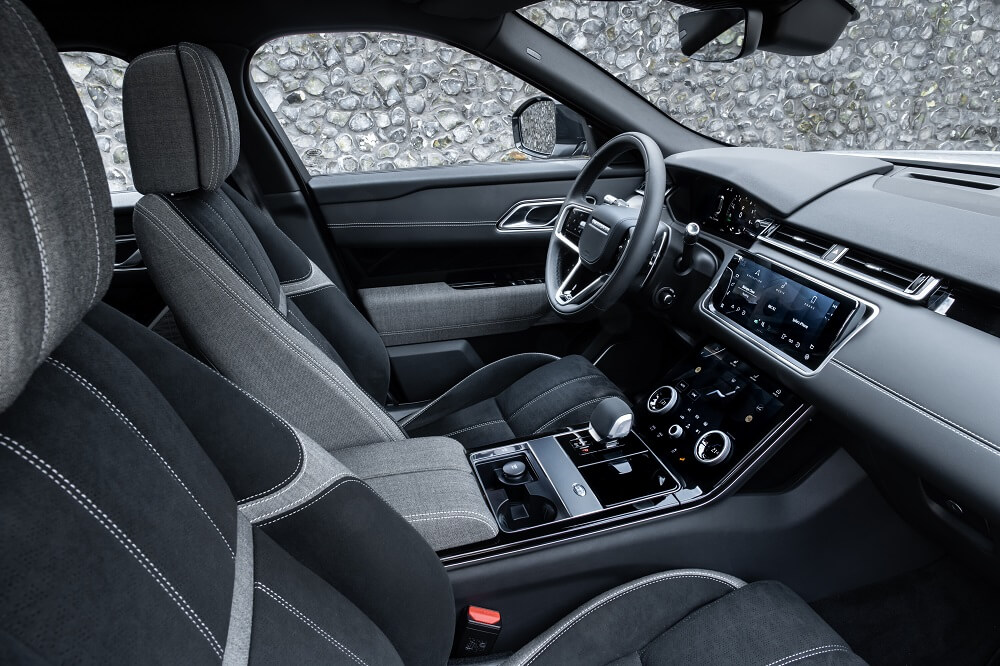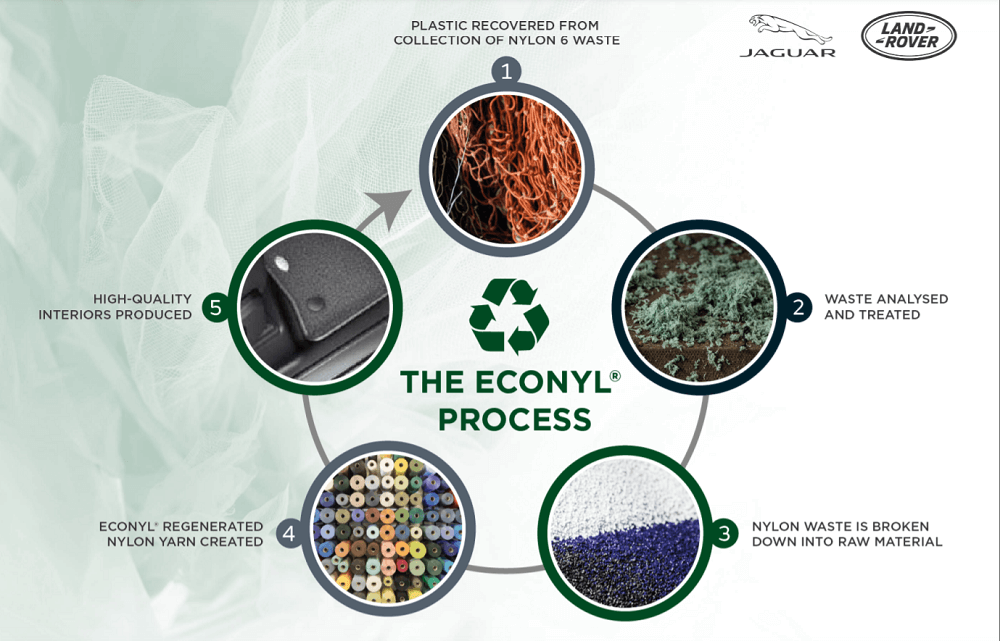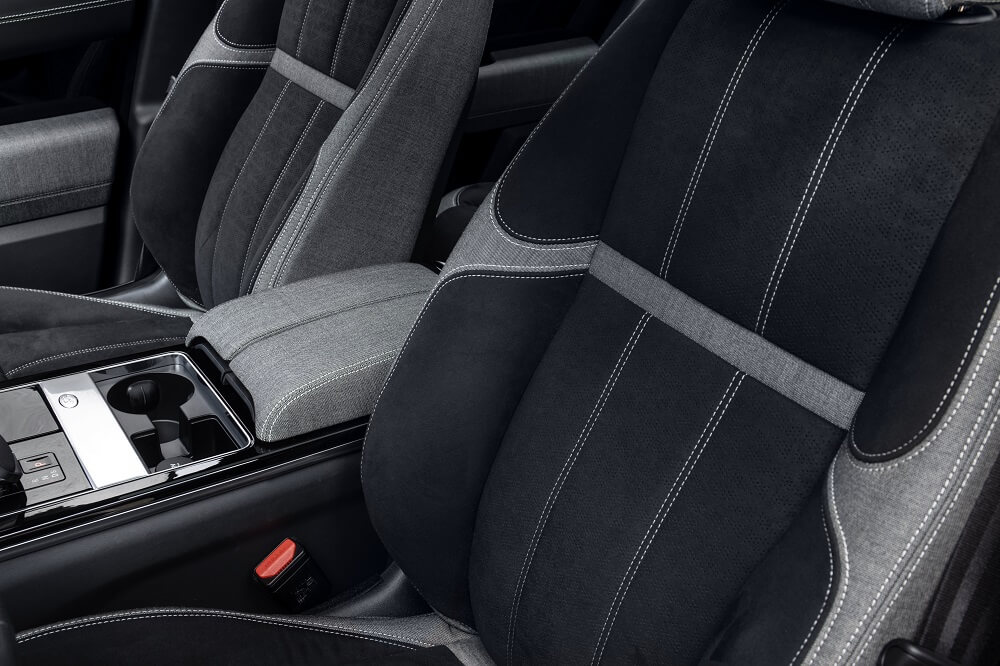Luxury Land Rovers and Jaguars adopt recycled plastics

The alarming amount of plastics in the world’s oceans has been thrown into stark relief in recent years by the lobbying efforts of environmental groups and activists.
According to the International Union for Conservation of Nature (IUCN), more than seven million tonnes of plastic end up in our oceans each year, representing a major threat to marine species which ingest or are entangled by plastic debris.
Now, British car maker Jaguar Land Rover (JLR) is taking a small step towards tackling the problem by announcing plans to use recycled plastic waste in the interiors of its next-generation models.
A statement from the British car maker said it was working with Aquafil – a global leader in the synthetic fibres industry – to use a regenerated nylon product called Econyl in the floor mats and interior trims of its future models.
Econyl is made from recycled industrial plastic, fabric offcuts from clothing manufacturers, fishing nets from the farming industry, and abandoned “ghost nets” which wreak havoc on marine ecosystems.

A statement from JLR said the commitment to designing sustainable luxury interiors using responsibly sourced and recycled materials is part of the company’s Destination Zero mission, with innovation helping to make environments safer and cleaner while offering customers a premium, sustainable option.
Destination Zero is a corporate mission statement adopted by JLR which envisages a world of zero emissions, zero accidents and zero congestion.
Econyl regenerated nylon has already been successfully used by high-end fashion, sportswear and luxury watch brands to create handbags, backpacks, swim wear and watch straps, according to JLR.
In a single year Aquafil reclaims and recycles as much as 40,000 tonnes of nylon waste, claiming that its recycling process reduces the global warming impact of nylon by 90%, compared with the material that’s produced from oil.
The resulting Econyl regenerated nylon polymer yarn will be used to manufacture floor mats for future JLR models with the goal of using more environmentally conscious and sustainable materials, while still providing customers with a premium and hardwearing product.
Senior engineer of interior systems at JLR Adrian Iles said: “Our designers and engineers are committed to developing the next generation of sustainable materials that will feature on future Jaguar and Land Rover models.

“We place a great deal of focus on the creation of new sustainable materials, using the latest, most innovative techniques and textiles.
“Minimising waste, re-using materials and reducing carbon emissions sits at the heart of our Destination Zero mission.
“This pioneering materials research is one of the key ways we’ll achieve this and is an integral part of our design offering to our customers.”
Earlier this year, JLR was certified for the second consecutive year by the Carbon Trust, confirming its business operations across the UK have met the internationally recognised standard for carbon neutrality, known as PAS 2060.
The company says together these UK-based sites represent 77% of its global vehicle production.
JLR currently offers a premium Eucalyptus textile interior on Range Rover Evoque and both that model and Jaguar’s all-electric I-PACE feature an optional interior finish called Kvadrat, which combines durable wool with a suede cloth made from 53 recycled plastic bottles per vehicle.
Related topics
Things to note
The information in this article has been prepared for general information purposes only and is not intended as legal advice or specific advice to any particular person. Any advice contained in the document is general advice, not intended as legal advice or professional advice and does not take into account any person’s particular circumstances. Before acting on anything based on this advice you should consider its appropriateness to you, having regard to your objectives and needs.
Insurance Products (excluding Travel Insurance) are issued by RACQ Insurance Limited ABN 50 009 704 152 (RACQI) and arranged by RACQ Distribution Services Pty Ltd (RDS) ABN 35 116 361 650, AFSL 567130 and RDS' authorised representatives (including RACQ Operations Pty Ltd ABN 80 009 663 414, AR No. 234978 (RACQO)). Conditions, limits and exclusions apply.
Any advice provided by RDS and RACQO is general advice only and does not take into account your personal objectives, financial situation or needs and you will need to consider whether the advice is appropriate for you. Read the Product Disclosure Statement (PDS) before making a purchase decision on the product. You can also access our Target Market Determinations on this website.
RDS receives a commission from RACQI for the policies it arranges. RACQO receives fees paid for services it provides to RDS. Further details about remuneration are available on request prior to purchasing.
Banking and loan products issued by Members Banking Group Limited ABN 83 087 651 054 AFSL/Australian credit licence 241195 trading as RACQ Bank. Terms, conditions, fees, charges and lending policies apply. This is general advice only and may not be right for you. This information does not take your personal objectives, circumstances or needs into account. Read the disclosure documents for your selected product or service, including the Financial Services Guide and the Terms and Conditions, and consider if appropriate for you before deciding.
Except for RACQ Bank, any RACQ entity referred to on this page is not an authorised deposit-taking institution for the purposes of the Banking Act 1959 (Cth). That entity’s obligations do not represent deposits or other liabilities of RACQ Bank. RACQ Bank does not guarantee or otherwise provide assurance in respect of the obligations of that entity, unless noted otherwise.
RACQ Bank subscribes to the Customer Owned Banking Code of Practice which establishes higher standards than the law requires. The Code reflects modern consumer expectations and developments in approaches to issues such as consumer vulnerability, guarantors, and supporting customers through financial hardship. Please read our Customer Owned Banking Code of Practice page for more information.
RACQ Operations Pty Ltd (ABN 80 009 663 414 AR 000234978) and Members Travel Group Pty Ltd (ABN 45 144 538 803 AR 000432492) are acting as an Authorised Representative of the issuer of the insurance, Tokio Marine & Nichido Fire Insurance Co., Ltd. (ABN 80 000 438 291 AFSL 246 548). Any advice set out above is general in nature only, and does not take into account your objectives, financial situation or needs. Before purchasing any travel products, please consider the RACQ Travel Insurance Product Disclosure Statement (PDS) and the Target Market Determinations (TMDs) that apply to these products. Whilst the PDS outlines the Terms and Conditions of these products, the TMDs outline the intended class of customers that comprise the target market for these travel products. This will allow you to consider which products best suit your objectives, financial situation and needs and consider the products appropriateness to your personal circumstances. TMDs also outline matters involving the distribution and the review of these products. The PDS, Supplementary PDS and TMDs for each travel product can be found here.

